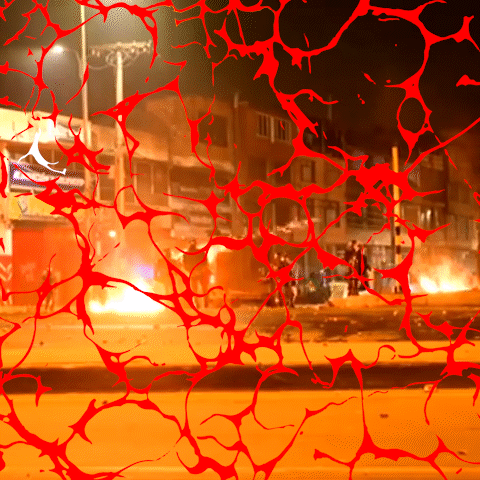Episode Transcript
Speaker 0 00:00:04 Welcome to failed architecture, breeze blocks, where our editors share their thoughts on works in progress, urgent matters, and current happenings in architecture and spatial politics. My name is Charlie <inaudible> today. I'm talking to Shruti Hossain, an architect, journalist and researcher based in Poony India. We're going to be talking about the COVID-19 pandemic in India and in particular, the impact the pandemic has had on India's large population of migrant laborers. But before we get to that, uh, Shruti maybe it's nice to talk a little bit about your own situation in Puni. Uh, how quarantine has affected your daily life. Then maybe we can briefly discuss how the Mecca unfolded in India.
Speaker 1 00:00:49 Sure. So obviously the first thing that happened was the school shut down and officer's shut down. So, uh, at a personal level for everybody, uh, the entire family was at home and there was schooling happening from home. There was, uh, office work happening from home. So that was, uh, something that you had to get used to with the family being there all the time, and then, you know, catering to everybody's needs at the same time. Plus you're in, in your flat and your apartment in your house. I can find you're not allowed to go out anywhere except for very essential stuff. The children couldn't go out to play. These are very basic things that we take for granted basically just to take a walk step out. So yeah, quarantine in the true sense of the world was like emotionally, a little difficult, you know, but this is coming from a very privileged point of view.
Speaker 1 00:01:36 I would see people, uh, really had a very tough time in terms of, you know, they lost their source of livelihood. There are millions of people in there who, you know, they're living on, on a daily basis, like daily wage earners. So these are the kinds of people who are really affected by quarantine. When the government said, you couldn't go out, you couldn't step out, you couldn't. So they couldn't procure their stuff. They couldn't sell, they didn't have money. They had to borrow. So yeah, according to you was difficult in that sense, we still have it. In fact, right now we are not warrantied. India is done with that. And right now we're in the stage of it's called the mission begin again, or unlock, and only very few areas where there are a high number of COVID cases. Only those areas are in quarantine and a lockdown right now.
Speaker 0 00:02:21 So, um, I would say that one of the main stories to come out of India since the pandemic is the huge migration of workers leaving cities and returning to their home towns. Um, I was wondering, could you talk a bit about this migration in terms of scale, uh, why it happened the way it did and what the response has been from, uh, the, the public, uh, media and the government?
Speaker 1 00:02:47 Uh, yeah, sure. Um, you know, when the word got around about the coronavirus and what should be the next strategy to handle it, the Indian government went along with the strategy of locking down, restricting the movement of 1.3 billion people, which was like a huge number of task. And on the 24th of March was when the first lockdown was announced. It was to be from 24th March to the 14th of April, the first phase. And what happened was people really didn't get any time to sort of prepare for staying at home. There, there are so many people who are not in their hometowns. So case in point is the huge force of migrant workers or migrant laborers that are there in Indian cities. So all of a sudden these people are left with no work, no money, and they're not even at home many chose to stay back and just to see how things unfold.
Speaker 1 00:03:40 Again, employers kind of took care of them for a month or so, but there were so many who kind of just overnight lost the jobs because establishments were told to shut down like, you know, small town restaurants and other lights, services, construction sites. We had to hold work. So these people were just left with nothing and they have very meager savings, whatever they own is sent back home. And they're only impetus to be in the cities. Um, there's nothing else really. There's no emotional connecting. They're single men. Their families are at home in their home states. So what happened is in the lockdown, all modes of transport, like trains and buses were all completely put to a halt. So what was the way to drive? Those were motorcycled or bicycles. They took on them. Others had to go on foot. So people literally saw this huge Exodus of migrant workers walking from big sort of like jelly Monday back to their hometown.
Speaker 1 00:04:33 It could be a hundred kilometers, 200, even 500 kilometers. That's a crazy amount. And they have been up to a number of really sad heart-wrenching stories of how much these workers suffered to just walk in the heat. It was summer in India. It was like the peak of summer with no food, less water. Um, they had, they had to have time. Yes. And people really saw this on their television sets and saw this literally from the balconies, from the windows. I would not say that the state governments, uh, like the state government of Maharashtra, where I'm from did not do anything at all they book and set up for migrant workers to just stay put for some time. But it was more of an emotional dome while I would say, uh, for, for migrants because they don't have any emotional attachment with this piece of work.
Speaker 1 00:05:19 They have to the, and whatever at least be with their families. I would say there was a communication gap between the migrant workers and the government. No one really saw this coming, this huge exogenous, which is like, you know, really compared to the sodas that happened when India was from Pakistan. And then we had this huge number of people traveling from one country to the other it's been compared in media reports, did that kind of, you know, scale eventually on May 1st, the dreams was started for, especially for workers to take them back home. Even right now, these trains are running and, um, buses have been started. So people have gone back home. And the first time I would say people and the media had to kind of sit up and take notice of this huge population that is there, not just in the construction industry, but also in other services. So they're your plumbers, electricians. They are waiters at restaurants. They are cooks they're domestic workers, all this huge force, which is just unseen and really the economy of big cities, like Mumbai only really works on this migrant workforce. There are very few local people who do this kind of work and do it efficiently and for the cost that they do that.
Speaker 0 00:06:30 And so of, um, brings us to the next thing I wanted to talk about, which was, I guess, the long-term impact that this has had on the spatial aspects within cities and rural areas, because, um, it obviously kind of represented a reversal in recent patterns of migration, even if it's temporary. So before it was kind of rural to urban and now it's urban to rural, but I, yeah, I'd be interested to know how this has impacted the urban and rural areas most effected. Yeah. To
Speaker 1 00:06:57 Give you an example of how this is impacting urban areas right now, very recently, like two days ago, I met a businessman who deals with a natural stone. So Marvel's grand Knight and big developers are his clients. And he's sitting with a huge inventory and local movements since the past three, four months because construction sites are closed. Developers are in the problem because they don't have the money. And even right now, they want to stop work, but there are no workers on the site. And these people are, remember they are skilled construction workers. So they are Bob benders. They know how to work with concrete. So you have to drill a local person to reach that level of expertise. It doesn't happen overnight. So they're really in a deep problem right now. They want to start work, but they cannot because there's just nobody to work.
Speaker 1 00:07:43 So this particular gentleman was telling me that on his go down where he kind of retails from also, he has at any given time, 50 to 60 workers who handled the marble and the granite, because it has to be handled in a particular way. You can't just have it moved anyhow. Right now he has barely five people and that to their local, he said, I cannot get good construction workers, good laborers, because they've all gone away. So I don't know how I'm going to survive. I don't know what is going to happen. We are all in a deep problem. So this is like actual on-site story. Uh, what we're reading in the newspapers, there, lots of reports of big developers. They're telling the contractors that, uh, you know, buy tickets for workers and just get them back to the, the site. There are reports of developers flying in construction workers from their home states of be harder not to publish, they're paying for the tickets so that they come back and work.
Speaker 1 00:08:35 And a lot of them are taking these tickets. Now they're thinking probably is a good time to sort of incentivize this opportunity because they'd been paid more to come back. And, um, yeah, many are coming back as well. And many those who stayed back are getting back to work. So this is how the urban scenario, it looks like it will take time to pick up it'll time. I believe for people to come back to their work sites, given the Google scenario of what is happening in states like depredation, be hard from where most of the workforce comes from the government. There is kind of realized that they need to kind of do something for their own people. So they're giving three rations to these people who have come back. They're also getting some kind of work. So they're getting paid for that kind of work.
Speaker 1 00:09:21 So what is happening is many also may not come back. Many workers may find some kind of work back home in their farms and incentives from the government to stay back. There are other reports that, you know, some states are trying to move for investors as an alternative to China. So they're going to boost their economy there, they're setting up industries for which they will require people. So they will do everything to make these people stay back. Another kind of thing that is coming up is, uh, industries are kind of realizing that they need to be based where a majority of the workforce comes from rather than making them travel across country. So maybe we see setting up a factories or, or some smaller units, factories, a big investment right now, given how the economy is, you know, it's in bad shape. So maybe some kind of smaller units come up there. You know, the labors are concentrating
Speaker 0 00:10:11 So interesting. Just the way that this kind of unexpected pandemic has these multiplier effects and these knock on effects that completely transform the way that the economy functions and completely limit the capacity to go back to normal. It's so interesting to hear these kinds of intricate, uh, impacts. Thanks for that. I, I, one thing that came up was that it seems to me that it might actually have a, uh, positive impact for the migrant workforce in terms of their own kind of working conditions. You know, they might have slightly more bargaining power. Uh, is that something definitely?
Speaker 1 00:10:46 I think so, because actually talking to people on ground, it seems like they're in a desperate need for these workers to come back. So it's already happening. Um, uh, developers, contractors have doubled their rates. So yeah, I think so that it will change the dynamics of the industry probably, but maybe say one year down the line when things probably, uh, may get back to the way they were, things can slide down as well for the migrant workers, you know, simply because they're, they're not really on the agenda for anyone, even, even the local politician say because they're not part of their world bank, they're not registered voters in that area. So it's nobody fights for their rights right now. It was a good time that they can sort of bargain for better wages. But the future, I don't know really, I can't say
Speaker 0 00:11:37 This is, um, the last question I had for you, um, about the article you wrote for failed architecture, India's dramatic smart city construction, boom, ignores a huge migrant workforce, toiling backstage, as the title suggests the construction industries, migrant workforce has suffered from a lack of concern, um, from the media and population at large, which is something you kind of discuss in the article. Um, yeah, I'd be interested to know. Maybe you could just elaborate a little bit more on how much the awareness of these conditions has increased since the pandemic and assuming it has, is there any sort of space for change in, in the conditions and also just a general increased concern for the situation of migrant laborers,
Speaker 1 00:12:25 Right. Uh, what happens in India, sort of his, uh, there is a lot of, uh, class disparity. So people have actually in this pandemic when, when things shut down, people have actually seen migrant labor of all kinds from across all industries actually take to the streets and walk down the highways, you know, trying to reach their homes. This has actually happened, you know, when you're driving down the road or just standing in your, in your window, men and children and babies, walking with the media, actually reporting it from the ground CSMs. I would say this huge feeling of empathy in the reporting as well. And even amongst the people, civil society really did a lot on for the migrant workers in terms of setting up camps or donating clothes, food, and, you know, kind of trying to help them out, even organizing some kind of transport to get them back home.
Speaker 1 00:13:20 There were reports of people across the spectrum doing this kind of thing. And this is, you know, directly in contrast with the infrastructure and the smart city mission that the government is having, uh, in all the, kind of the mandate that is there for smart city mission. There, isn't really a mention about what will happen to this huge migrant workforce, which is present in the cities they're not acknowledged and their whole mandate, the aims and objectives that you need to acknowledge that there is this 30, 40% population that is migratory, what's going to happen to them in the, in the smart cities or what kind of smart infrastructure are you going to give to these people and on ground? Um, um, I, I hope something happens really. I hope because the governments have been promising, the government of Maharashtra has said that they will be normal lockdowns.
Speaker 1 00:14:09 So they're asking migrant workers to come back to kind of do something for the economy, because it really will not work, uh, without this, uh, workforce, the taxi drivers, which drivers, the domestic health, they're all kinds of things, you know, which sort of make the city run. Also. I think that their home states, the home states of the migrant workers have also sort of got up and realized that this is our human resources where we need to kind of do something for them. So there are a lot of, I see that there will be an improvement in the situation and yeah, I hope there's something good for them though. I see a slow development.


